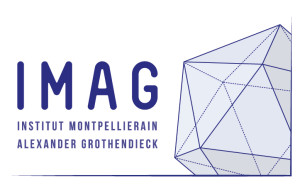Ideotype map research based on a crop model in the context of a climatic gradient
Résumé
Highlights:
• Mega-environment concept is challenged by climatic gradient in Sahel.
• Irregular weather patterns impede expected yield estimation using multilocal.
• Optimizing expected yields w.r.t. varietal parameters generates ideotype maps.
• A novel kriging-based algorithm achieves this optimization.
Abstract:
Due to increasing climate uncertainties, optimizing plant traits is essential for sustainable agriculture. This article presents an approach that combines advanced modelling techniques to identify optimal plant traits under various agro-environmental conditions. By integrating a crop model, a climate generator, and our PEQI algorithm (Profile Expected Quantile Improvement), our method aims to create ideotype maps tailored to specific regions.
We use the SAMARA model (Simulator of crop trait Assembly, MAnagement Response, and Adaptation), calibrated with trials carried in Sahel on a set of local varieties, to simulate crop growth in diverse environments. The PEQI algorithm adjusts varietal parameters to maximize expected yield, defining precise selection objectives known as ideotypes, which are particularly important in regions with irregular rainfall patterns like the Sahel.
With the PEQI algorithm based on a kriging metamodel, we ensure effective adaptation to spatially variable environments. By leveraging a climate generator to simulate meteorological variability, our integrated approach optimizes crop yields in regions such as Senegal, southern Mali, Burkina Faso, and Guinea-Bissau. The outcome is an ideotype map for sorghum, providing breeders with a robust decision-support tool to enhance crop performance amidst climate uncertainty.
Graphical abstract: https://ars.els-cdn.com/content/image/1-s2.0-S030438002400228X-ga1_lrg.jpg
| Origine | Publication financée par une institution |
|---|---|
| licence |




